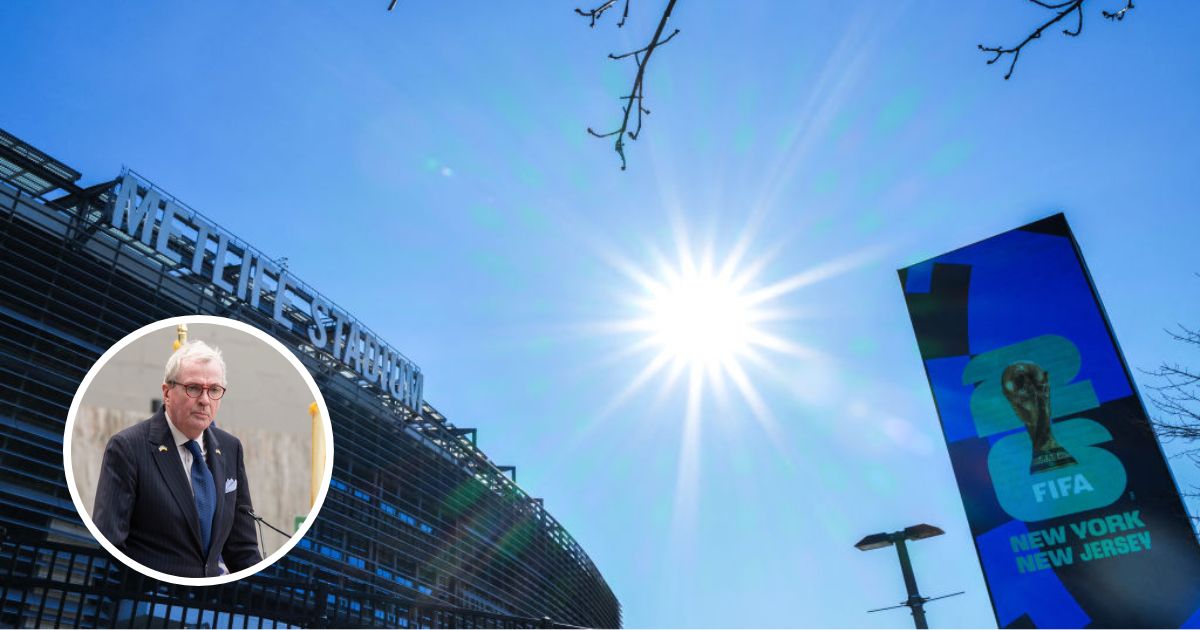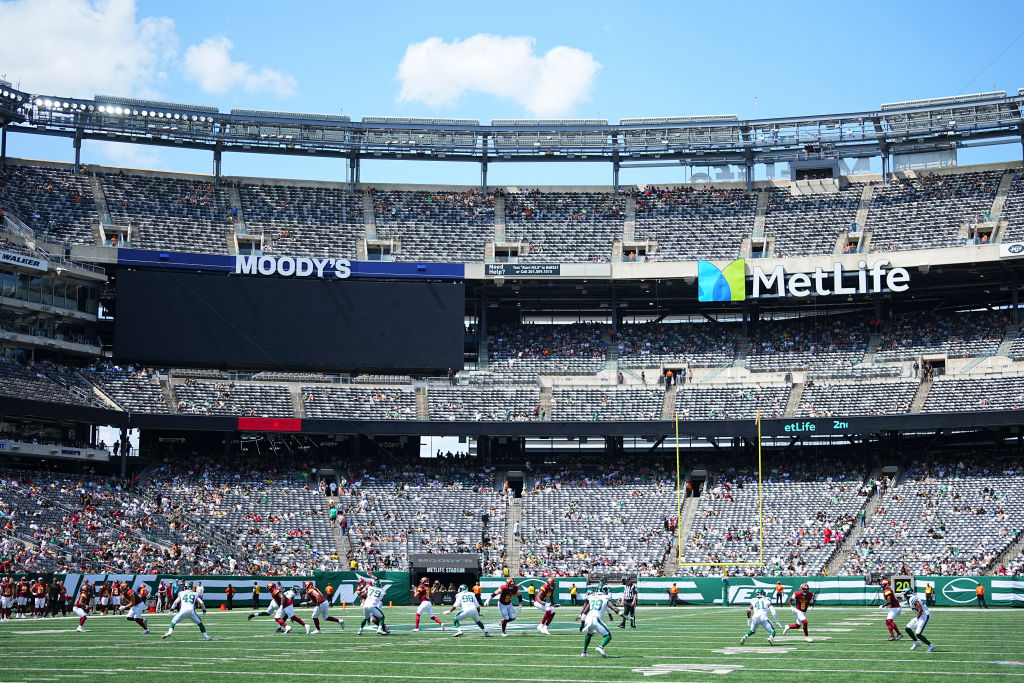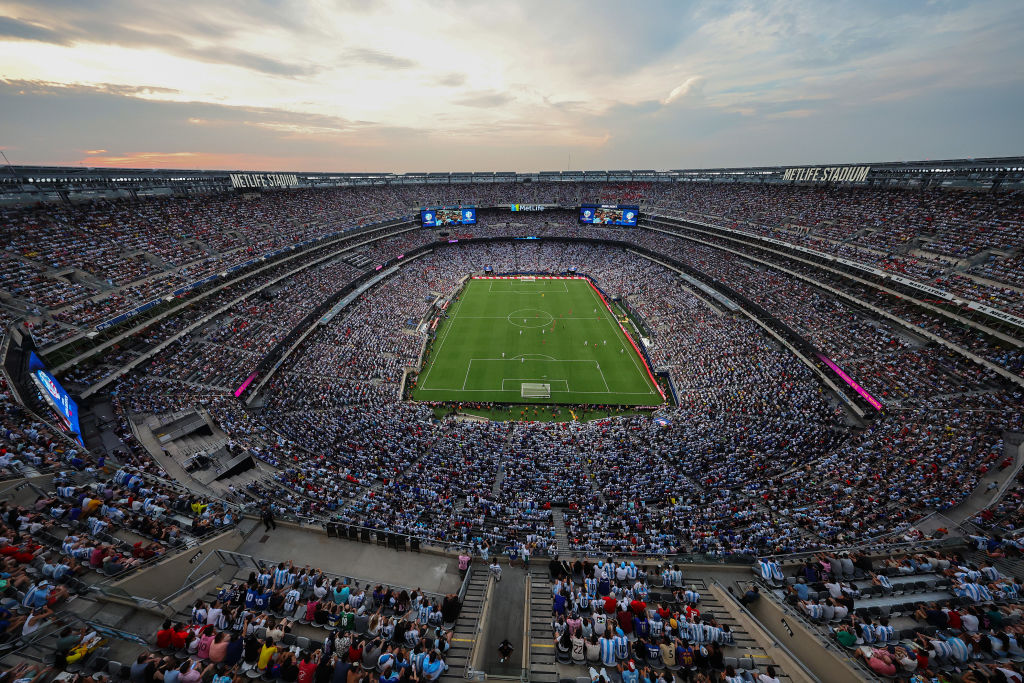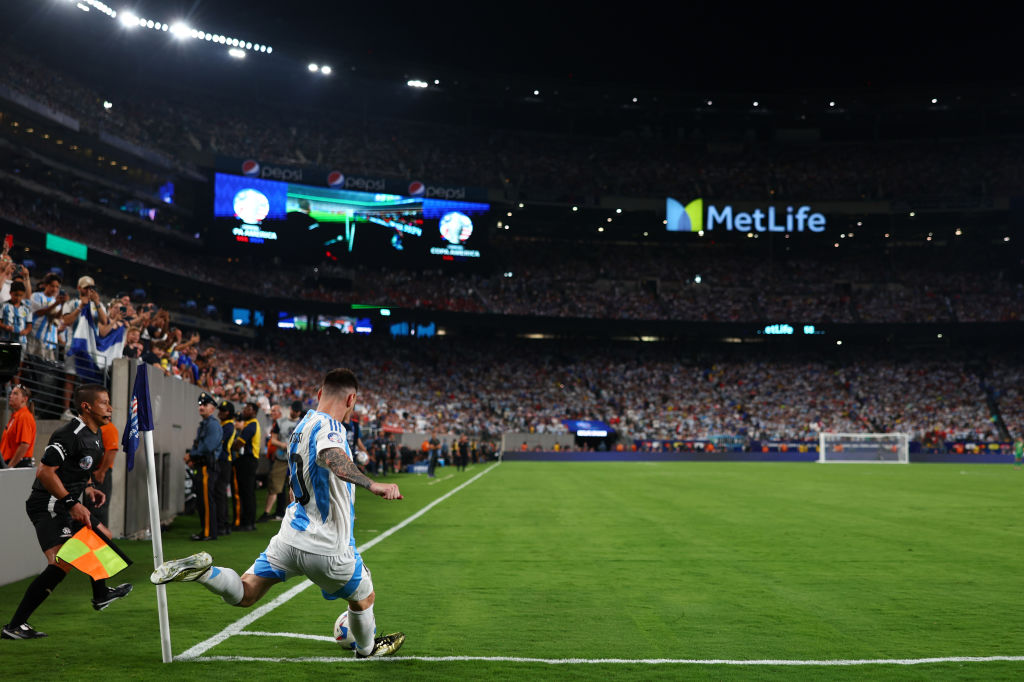
Earlier this year MetLife stadium in New Jersey was awarded rights to host the FIFA World Cup 2026 final. Phil Murphy, governor of New Jersey, has told FourFourTwo that preparations are going according to plan and that he'd like to see more than just World Cup games in his borough.
It's not just the final Murphy has to look forward to (or worry about). There will be seven other World Cup games held at the venue, with a few other high-profile matches before then (an El Clásico 'friendly' was played there last month).
We sat down with the Boston-born politician, who is a part owner of pro-women's team NJ/NY Gotham FC, to talk soccer.
WATCH | How Gareth Southgate Evolved England (And Why He HAD To Go)
How is the state of play in terms of preparations, with two years to go until the start of the tournament?
Phil Murphy: “We just hosted several Copa América games in Met Life Stadium, most recently Argentina-Canada [semi-final]. Those were great fan experiences. The transportation was good and that's something we've been hyper-focused on. There were some really big challenges with the old version of New Jersey Transit. And it's been a work in progress, but the trajectory is in the right direction. This is my seventh year as governor and I'd say in the last four to five years the experience has been meaningfully better.
“And it will be not just the games in the stadium, but both New York City and New Jersey will be alive with all sorts of ancillary elements such as fan fests. We think we'll pull in literally millions of folks into the region. We're right in the middle of a three-host city reality. You've got Foxborough outside of Boston. You've got ourselves with New York City and MetLife and then you've got Philadelphia, which is right down the block from us. So Jersey's in a pretty cool dynamic; that northeast corridor has been nice. The working relationship among Foxborough, New York, New Jersey, and Philadelphia has been really good.”
What will be the role of New Jersey and MetLife stadium during the Club World Cup, which will be held next summer?
PM: “I'll let FIFA speak about that, because it's a FIFA reality. But we're highly confident that we'll play a significant role in that tournament. The Copa America came together with a shorter runway and we were able to deal with it. The Club World Cup has never happened before and I'm optimistic we will be part of it. It's a great opportunity to show what you've got ahead of time.”

At the moment there is an artificial pitch in the stadium, what kind of surface will there be during the World Cup?
PM: “There won't be an artificial turf for the World Cup, we will be seeding a proper pitch. We did that before and we'll do it again, our guys who have done it have had a very strong track record. We have a long runway in this case unlike the Copa [América], with which we had a shorter runway.”
What is your personal relationship with football and how was it influenced by your time in Germany where you worked as the US-ambassador between 2009 and 2013?
PM: “I've played it since I was a kid and our kids all have played at high levels of club and school teams. We [Murphy and his wife Tammy] are co-owners of the women's professional team in New York/New Jersey: Gotham FC. I was on the board of the U.S. Soccer Foundation. We bleed this sport.
"And in terms of our time in Germany, everything got magnified or amplified then. We have been many times to the Olympiastadion and developed extraordinary relations with the DFB [German FA]. During the recent Euros we had dinner with a bunch of luminaries, including Sami Khedira, Jogi Löw, Benedikt Höwedes and Giorgio Chiellini. This is a sport that we are deeply enmeshed in. Perhaps a little unusual as Americans, but we love it. Tammy's the chair of Gotham and I think we had several players in the Olympics, including players who will play for non-American Olympic teams. We're incredibly proud of that.”

In terms of preparations for the upcoming World Cup, has there been any thing you learned from the major tournaments in Germany over the years?
PM: "Yeah, we were at the World Cup in 2006 and during the recent Euros we've had a lot of folks over in Germany on missions to observe how things have gone, in terms of security and logistics for example. And I think it's gone quite well for the most part. I know there have been some public transit hiccups, but for the most part it has been a good tournament. And we compare notes constantly. My team is constantly on the phone with their colleagues in Los Angeles, Philadelphia, Foxborough, you name it. We do a lot of inside sharing for the World Cup, obviously with FIFA [part of it as well].”
What are your dreams for the World Cup and the things you want to leave behind?
PM: “We want to make the World Cup accessible. You don't want to just make it for the folks who can afford it. It’s not just about who gets in the stadium, but the legacy of the cup is what's left behind. That's very much our philosophy. I think the most important part of this, is what the impact will be in 10 and 20 years from now. In particular, did you get kids involved, particularly in underserved communities and did you give them access to the sport that they otherwise would not have had access to? Did you bring them into the game? Did you build fields? That, to me, is paramount. So that includes who gets in the stadium, but also who's playing the sport 20 years from now.”
Do you think the World Cup will help football [soccer] seriously infiltrate into the US sports landscape?
PM: “Yes, I really do. When we met with Aleksander Čeferin during the Euros he made a point – which I didn't know – that the number two country in terms of ticket sales for the Euro 2024 tournament was the United States of America, behind Germany. And that’s without a US team in the tournament, which is pretty remarkable. And not only were the Americans the number two ticket buyers, I‘ve also been told they were the number two viewers this tournament, in terms of total numbers of people watching. And that's not easy because these games have been on at nine in the morning, noon, or three in the afternoon, depending on when the games were played. It’s not like that everyone's sitting around [to watch] on a Tuesday at nine in the morning.”

Do you think soccer could form a real challenge in terms of audience to the big American sports? The NFL is pretty secure, right?
PM: “Interestingly enough, 125 million people watched the Super Bowl, where I think the World Cup final had a billion and a half. Those are global figures. And I think a World Cup [for the US] is what the doctor ordered. I mean, to have a World Cup in your backyard, I think that's the gasoline on the fire. I think it's smouldering, it's come a long way since ‘94 [the previous World Cup in the US]. Admittedly we're not quite at the level of aspiration we wanted to get to, but all the curves are in the right direction. To have a World Cup is a quantum step.”
We've seen NBA and NFL games in London. How would you feel about New Jersey hosting a Premier League game?
PM: “I would absolutely love that. Last summer we had Arsenal and Man U and every ticket was sold then as well. By the way, both managers decided to do a penalty shootout at the end of the regular match, no matter what the score was, just to give their players the experience of doing a shootout. [Man United won the match 2-0 and subsequent penalty series 5-3] So we were all wondering, what is going on here? We found out after the fact, haha! But I would love to see happening what the NFL does. I'm all for the exhibitions and we sell every ticket for these games; we love them. But we would absolutely love a game that counts, either in a domestic league or in a Champions League setting.”
There will be eight World Cup games in the MetLife stadium in 2026, which will be renamed New York/New Jersey Stadium during the tournament. What is already known about the pathway for the countries and their fans that will compete in the tournament?
PM: “We know that the US will be playing on the West Coast. And this will obviously be the first World Cup with 48 teams. So you're going to have a little bit of a version of the Euros, where you've got 12 groups here, with the top two teams advancing automatically, and then you've got the best eight number threes, which makes it challenging in terms of where you book your hotel. Before you used to be able to know where you would go after you finished the group, but that's going to be harder this time.
“But all in all, we feel really good about how we're preparing for everything. We're honoured to be one of the hosts and certainly hosts of the final. And, by the way, there are games [in Philadelphia and Houston] on July 4th, 2026, which is the 250th birthday of the United States of America. So all that together makes us very excited.”
More World Cup 2026 stories
When are 2026 World Cup tickets on sale and how can you buy them?
Can't start a fire without a spark: On the ground at the Hudson River Derby in New York City
When does World Cup 2026 qualifying begin?







